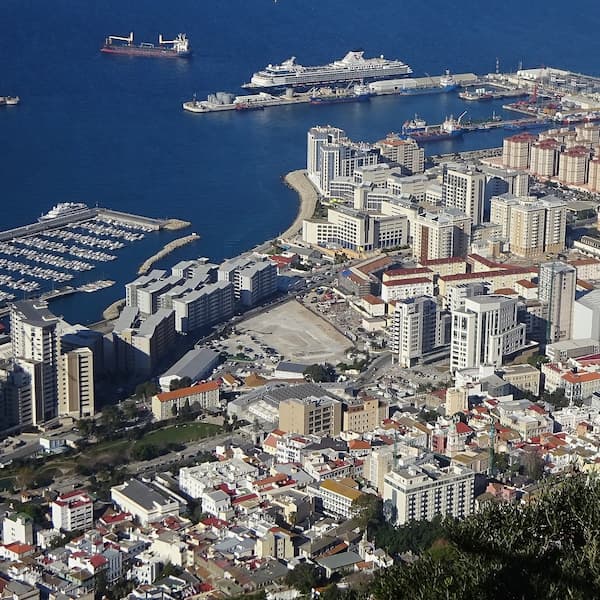Offshore
Gibraltar Suspends Fresh Residency Requests – What's Next?

The authors say Gibraltar, a British overseas territory, must be careful about thinking of suspending residency lest it harms the jurisdiction's image and deters family offices and advisors.
In a move which has caught much of the business community off guard, the Gibraltar Government has suspended all new residency applications by UK and EEA nationals. The legislative change follows a spike in demand linked to The Rock’s anticipated inclusion in the Schengen area under the June UK/EU agreement on Gibraltar, which would confer free movement to Gibraltar residents.
This development surprised some in the private client industry. To discuss this development are Elliott Phillips (pictured below) and senior associate Paul Grant (pictured below) at Signature Litigation Gibraltar's offices. The editors are pleased to share these insights on what is a complex matter; the usual disclaimers apply to views of guest writers. To comment, please email tom.burroughes@wealthbriefing.com and amanda.cheesley@clearviewpublishing.com

Elliott Phillips

Paul Grant
Gibraltar has introduced a temporary halt to new residency
applications by UK and European Economic Area (EEA) nationals
after experiencing what officials describe as an extraordinary
spike in demand since June. The change, brought in through the
Immigration (EU Exit) Regulations 2025 and effective from 6
October 2025, suspends the processing of fresh applications for
residence rights under provisions of the Immigration, Asylum and
Refugee Act.
While the move caught parts of the business community off guard, the Gibraltar Government considers it to be a responsible step to ensure that access to services remains focused on those with genuine ties to Gibraltar and that Gibraltar remains economically competitive.
What has changed and who is affected?
The suspension applies to new residency applications by citizens
of countries within the EEA, as well as to UK and Swiss
nationals, which Gibraltar law treats within the same operative
definition for these purposes. In practical terms, EEA and UK
citizens are not permitted to reside in Gibraltar for more than
three months unless they held, as of 6 October 2025, one of the
following: a registration certificate, a residence card, a
document certifying permanent residence, or a permanent residence
card.
Applicants who submitted complete applications before 6 October and are awaiting decisions are not impacted; their cases continue to be processed under the pre-existing rules.
The Department of Immigration and Home Affairs cannot issue new residency documents during the pause, with two narrow exceptions. First, it may finalise pending applications filed before 6 October. Second, it may issue documents with the approval of the Chief Minister where it is in Gibraltar’s interests to do so, including to meet binding international obligations, to avoid extreme hardship, or where there are economic considerations.
Why now?
Gibraltar typically receives around 1,000 residency applications
a year. Since June, however, volumes appear to have approximately
tripled. The surge coincides with the announcement of a political
agreement – announced on 11 June 2025 – paving the way for a
UK/EU treaty governing Gibraltar’s future relationship with the
EU. A central attraction of the proposed framework is that
residency in Gibraltar would confer free movement in the Schengen
area – an advantage that is especially compelling for
British nationals post-Brexit and comparatively rare outside the
EU.
Officials emphasise that without careful management, the inflow risks placing significant pressure on Gibraltar’s limited land and public services. In remarks this summer, Chief Minister Fabian Picardo signalled that Gibraltar would likely need to be more selective about residency once the treaty is in place, ensuring that the system prioritises applicants who contribute economically or socially to the community.
Implementation approach
The government has stressed that the pause is not intended to
disadvantage people in genuine employment or those actively
contributing to Gibraltar’s economy and public finances. Rather,
it is an anti-abuse measure to address the sharp rise in
inquiries from individuals lacking current residency records or
demonstrable links to Gibraltar.
Where a legitimate economic case exists – such as hiring an employee crucial to a Gibraltar-based enterprise, or admitting an investor whose presence yields clear benefits – the Department can proceed, subject to the Chief Minister’s approval.
Reaction from business
Business organisations reacted with surprise to the publication
of the regulations, which arrived without an accompanying press
release or explanatory note. The Chamber of Commerce reported a
wave of member queries, seeking clarity on how the pause might
affect staffing plans, expansion projects and investment
timelines. The Chamber relayed government assurances that the
measure is temporary and should not disrupt employment procedures
for companies already operating in Gibraltar.
Still, the rollout’s optics matter. The absence of early guidance arguably risked sending the wrong signal to the market, creating the impression that Gibraltar was closing the door to new residents at precisely the moment when its treaty prospects were generating international interest. To others, the underlying intent appears to be the opposite: a short, corrective pause to shape a sustainable, credible pathway for genuine applicants as the treaty’s contours become clearer.
In a Ministerial Statement to Parliament on 15 October, the Chief Minister sought to reassure the public that the measure does not constitute a closure of Gibraltar’s doors, but rather a practical step to ensure that residency remains fair, robust, and sustainable as Gibraltar prepares for the new treaty environment. Furthermore, the Chief Minister stated that Gibraltar remains open for business and 'fiscally attractive' residency criteria will be published shortly.
Analysis
The suspension of new residency applications will be seen by some
as a pragmatic response to a sudden demand shock, not a shift
towards isolation. The legal architecture would appear to
preserve continuity for those already in the system and carves
out a principled route for approving new cases where Gibraltar’s
interests are clearly engaged. If that is the case, this design
balances three imperatives: controlling volume, prioritising
genuine ties, and retaining discretion for economic opportunity
need.
This episode underscores both the opportunity and the challenge as Gibraltar approaches a new phase in its external relations. On the opportunity side, the anticipated treaty could enhance Gibraltar’s attractiveness by combining established local benefits – such as access to healthcare and further education – with Schengen-area mobility. That combination is a powerful differentiator. On the challenge side, the sudden rush of applications exposes the need for a coherent strategy to calibrate residency flows with Gibraltar’s finite space and infrastructure.
Gibraltar should proceed carefully when contemplating any residency suspension measures. As one of the smallest overseas territories, it has built a strong reputation for its sophisticated offering to ultra- and high net worth individuals. However, even the perception that such measures might be temporary or subject to reversal can deter family offices and their advisors; precisely the stakeholders that have been in the Rock's sights in recent years.
Ultimately, the measure will need to be judged by its outcomes.